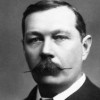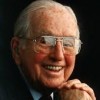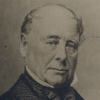LUCIUS: Sweet are the slumbers of the virtuous man!
Joseph Addison (1672-1719) English essayist, poet, statesman
Cato, Act 5, sc. 4, l. 26 (1713)
(Source)
Quotations about:
sleep
Note not all quotations have been tagged, so Search may find additional quotes on this topic.
From rest and sleepe, which but thy pictures bee,
Much pleasure, then from thee, much more must flow.John Donne (1572-1631) English poet
Holy Sonnets, No. 10, “Death Be Not Proud,” ll. 5-6 (1609)
(Source)
Life is a disease temporarily relieved every sixteen hours, by sleep. The complete cure: death.
[Vivre est une maladie dont le sommeil nous soulage toutes les seize heures. C’est un palliatif. La Mort est le remède.]
Nicolas Chamfort (1741-1794) French writer, epigrammist (b. Nicolas-Sébastien Roch)
Products of Perfected Civilization [Produits de la Civilisation Perfectionée], Part 1 “Maxims and Thoughts [Maximes et Pensées],” ch. 2, ¶ 113 (1795) [tr. Parmée (2003), ¶ 91]
(Source)
(Source (French)). Alternate translations:
Life is a malady in which sleep soothes us every sixteen hours; it is a palliation; death is the remedy.
[Ballou, comp. (1872)]
Living is a disease from the pains of which sleep eases us every sixteen hours; sleep is but a palliative, death alone is the cure.
[tr. Hutchinson (1902)]
Life is a disease from which sleep gives us alleviation every sixteen hours. Sleep is a palliative, Death is the remedy.
[tr. Mathers (1926)]
Living is an ailment which is relieved every sixteen hours by sleep. A palliative Death is the cure.
[tr. Merwin (1969)]
To live is a malady from which sleep vouchsafes us relief every sixteen hours. That is a palliative. The remedy is death.
[tr. Pearson (1973)]
To live is a sickness that sleep comforts every sixteen hours. It's a palliative. Death is the cure.
[tr. Sinicalchi]
Life is a sickness to which sleep provides relief every sixteen hours. It's a palliative. The remedy is death.
[Source]
The pack of this world was a kind of pleasant weight upon me, as happens in sleep, and the thoughts in which I meditated on you were like the efforts of someone who tries to get up but is so overcome with drowsiness that he sinks back again into sleep. Of course no one wants to sleep forever, and everyone in his senses would agree that it is better to be awake; yet all the same, when we feel a sort of lethargy in our limbs, we often put off the moment of shaking off sleep, and, even though it is time to get up, we gladly take a little longer in bed, conscious though we may be that we should not be doing so. In just the same way I was quite certain that it was better to give myself up to your charity rather than to give in to my own desires; but, though the former course was a conviction to which I gave my assent, the latter was a pleasure to which I gave my consent.
[Ita sarcina saeculi, velut somno adsolet, dulciter premebar, et cogitationes quibus meditabar in te similes erant conatibus expergisci volentium, qui tamen superati soporis altitudine remerguntur. Et sicut nemo est qui dormire semper velit omniumque sano iudicio vigilare praestat, differt tamen plerumque homo somnum excutere cum gravis torpor in membris est, eumque iam displicentem carpit libentius quamvis surgendi tempus advenerit: ita certum habebam esse melius tuae caritati me dedere quam meae cupiditati cedere, sed illud placebat et vincebat, hoc libebat et vinciebat.]
Augustine of Hippo (354-430) Christian church father, philosopher, saint [b. Aurelius Augustinus]
Confessions, Book 8, ch. 5 / ¶ 12 (8.4.12) (c. AD 398) [tr. Warner (1963)]
(Source)
(Source (Latin)). Alternate translations:
Thus with the baggage of this present world was I held down pleasantly, as in sleep: and the thoughts wherein I meditated on Thee were like the efforts of such as would awake, who yet overcome with a heavy drowsiness, are again drenched therein. And as no one would sleep for ever, and in all men's sober judgment waking is better, yet a man for the most part, feeling a heavy lethargy in all his limbs, defers to shake off sleep, and though half displeased, yet, even after it is time to rise, with pleasure yields to it, so was I assured that much better were it for me to give myself up to Thy charity, than to give myself over to mine own cupidity; but though the former course satisfied me and gained the mastery, the latter pleased me and held me mastered.
[tr. Pusey (1838)]
Thus with the baggage of the world was I sweetly burdened, as when in slumber; and the thoughts wherein I meditated upon Thee were like unto the efforts of those desiring to awake, who, still overpowered with a heavy drowsiness, are again steeped therein. And as no one desires to sleep always, and in the sober judgment of all waking is better, yet does a man generally defer to shake off drowsiness, when there is a heavy lethargy in all his limbs, and, though displeased, yet even after it is time to rise with pleasure yields to it, so was I assured that it were much better for me to give up myself to Thy charity, than to yield myself to my own cupidity; but the former course satisfied and vanquished me, the latter pleased me and fettered me.
[tr. Pilkington (1876)]
Thus with the baggage of this world I was sweetly pressed down, as it happens in sleep ; and the thoughts by which I meditated on Thee were like the efforts of those who would awake, but who being overpowered by deep drowsiness, are again immersed therein. And as no one wishes to be always asleep, and in the sound judgment of all men waking is better; yet often does a man, when a heavy drowsiness is upon his limbs, defer to shake off sleep, and though not approving it, yet even when the time to rise has come, more willingly encourage it; so was I convinced that it was better for me to surrender myself to Thy Charity, than to yield myself up to my own lusts; but the former course approved itself and convinced me, the latter pleased me and held me bound.
[tr. Hutchings (1890)]
So the heavy burden of the world seemed delightful, as in a dream, and my musings on Thee were like the struggles of one who would awake, but falls back overcome by depths of slumber. And as no one wishes to sleep for ever, for all men rightly count waking better, and yet a man will not break his slumber when his limbs are heavy with drowsiness, and is glad to sleep on, though his reason disapproves and the hour for rising has struck, so I knew for certain that it was better to yield to Thy love than to my lust, but the love charmed and could not prevail, the lust pleased and bound me.
[tr. Bigg (1897), 8.5.2]
I was held down as agreeably by this world’s baggage as one often is by sleep; and indeed the thoughts with which I meditated upon You were like the efforts of a man who wants to get up but is so heavy with sleep that he simply sinks back into it again. There is no one who wants to be asleep always -- for every sound judgment holds that it is best to be awake -- yet a man often postpones the effort of shaking himself awake when he feels a sluggish heaviness in the limbs, and settles pleasurably into another doze though he knows he should not, because it is time to get up. Similarly I regarded it as settled that it would be better to give myself to Your love rather than go on yielding to my own lust; but the first course delighted and convinced my mind, the second delighted my body and held it in bondage.
[tr. Sheed (1943)]
Thus with the baggage of the world I was sweetly burdened, as one in slumber, and my musings on thee were like the efforts of those who desire to awake, but who are still overpowered with drowsiness and fall back into deep slumber. And as no one wishes to sleep forever (for all men rightly count waking better) -- yet a man will usually defer shaking off his drowsiness when there is a heavy lethargy in his limbs; and he is glad to sleep on even when his reason disapproves, and the hour for rising has struck -- so was I assured that it was much better for me to give myself up to thy love than to go on yielding myself to my own lust. Thy love satisfied and vanquished me; my lust pleased and fettered me.
[tr. Outler (1955)]
Thus by the burdens of this world I was sweetly weighed down, just as a man often is in sleep. Thoughts wherein I meditated upon you were like the efforts of those who want to arouse themselves but, still overcome by deep drowsiness, sink back again. Just as no man would want to sleep forever, and it is the sane judgment of all men that it is better to be awake, yet a man often defers to shake off sleep when a heavy languor pervades all his members, and although the time to get up has come, he yields to it with pleasure even although it now irks him. In like manner, I was sure that it was better for me to give myself up to your love than to give in to my own desires. However, although the one way appealed to me and was gaining mastery, the other still afforded me pleasure and kept me victim.
[tr. Ryan (1960)]
In fact I bore the burden of the world as contentedly as one sometimes bears a heavy load of sleep. My thoughts, as I meditated upon you, were like the efforts of a man who tries to wake but cannot and sinks back into the depths of slumber. No one wants to sleep forever, for everyone rightly agrees that it is better to be awake. Yet a man often staves off the effort to rouse himself when his body is leaden with inertia. He is glad to settle down once more, although it is against his better judgement and it is already time he were up and about. In the same way I was quite sure that it was better for me to give myself up to your love than to surrender to my own lust. But while I wanted to follow the first course and was convinced that it was right, I was still a slave to the pleasures of the second.
[tr. Pine-Coffin (1961)]
So, as happens in a drowsiness, was I pleasantly loaded with the baggage of this world, and the thoughts I had in mind of you were like the struggles of those who want to wake up, but overcome by deep sleep are drowned in it again. And just as there is no one who wants to go on sleeping for ever (for in any sane man’s judgment it is better to stay awake), still a man does often postpone shaking off sleep, when he feels a heavy lethargy through all his limbs, and in spite of himself is prone to doze again, when often it is time to rise, in just such a fashion, I was certain that it was better to surrender to your love than to give in to my desire. The former course pleased and convinced me; the latter seduced me and held me prisoner.
[tr. Blaiklock (1983)]
I was thus weighed down by the pleasant burden of the world in the way one commonly is by sleep, and the thoughts with which I attempted to meditate upon you were like the efforts of people who are trying to wake up, but are overpowered and immersed once more in slumberous deeps. No one wants to be asleep all the time, and it is generally agreed among sensible people that being awake is a better state, yet it often happens that a person puts off the moment when he must shake himself out of sleep because his limbs are heavy with a lassitude that pulls him toward the more attractive alternative, even though he is already trying to resist it and the hour for rising has come; in a similar way I was quite sure that surrendering myself to your love would be better than succumbing to my lust, but while the former course commended itself and was beginning to conquer, the latter charmed and chained me.
[tr. Boulding (1997)]
But, as it is in a nightmare, when sleep’s narcotic hand
Is leaden upon our eyes, we seem to be desperately trying
To run and run, but we cannot — for all our efforts, we sink down
Nerveless; our usual strength is just not there, and our tongue
Won’t work at all — we can’t utter a word or produce one sound ….[Ac velut in somnis, oculos ubi languida pressit
nocte quies, nequiquam avidos extendere cursus
velle videmur et in mediis conatibus aegri
succidimus, non lingua valet, non corpore notae
sufficiunt vires, nec vox aut verba sequuntur ….]Virgil (70-19 BC) Roman poet [b. Publius Vergilius Maro; also Vergil]
The Aeneid [Ænē̆is], Book 12, l. 908ff (12.908-912) (29-19 BC) [tr. Day-Lewis (1952)]
(Source)
How Turnus feels, in the middle of combat with Aeneas, with the nightmarish crippling of his abilities by a Fury sent from Jove.
(Source (Latin)). Alternate translations:
As when in quiet night, sleepe seiles our eye,
In vain we seeme some earnest flight to trie,
But in the midst we faint, our voice doth faile,
Nor speech, nor words, nor our known strength prevaile.
[tr. Ogilby (1649)]
And as, when heavy sleep has clos'd the sight,
The sickly fancy labors in the night;
We seem to run; and, destitute of force,
Our sinking limbs forsake us in the course:
In vain we heave for breath; in vain we cry;
The nerves, unbrac'd, their usual strength deny;
And on the tongue the falt'ring accents die ....
[tr. Dryden (1697)]
And as in dreams by night, when languid sleep hath closed our eyes, we seem in vain to make effort to prolong a race on which we are intent, and in midst of our efforts sink down faint; nor power is in the tongue, nor in the body competency of wonted strength, nor voice nor words obey [the dictates of our will] ....
[tr. Davidson/Buckley (1854)]
E'en as in dreams, when on the eyes
The drowsy weight of slumber lies,
In vain to ply our limbs we think,
And in the helpless effort sink;
Tongue, sinews, all, their powers bely,
And voice and speech our call defy ....
[tr. Conington (1866)]
And as in dreams, when languid sleep at night
Weighs down the eyelids, and in vain we strive
To run, with speed that equals our desire.
But yield, disabled, midway in our course;
The tongue, and all the accustomed forces fail.
Nor voice nor words ensue ....
[tr. Cranch (1872)]
And as in sleep, when nightly rest weighs down our languorous eyes, we seem vainly to will to run eagerly on, and sink faint amidst our struggles; the tongue is powerless, the familiar strength fails the body, nor will words or utterance follow ....
[tr. Mackail (1885)]
E'en as in dreaming-tide of night, when sleep, the heavy thing,
Weighs on the eyes, and all for nought we seem so helpless -- fain
Of eager speed, and faint and fail amidmost of the strain;
The tongue avails not; all our limbs of their familiar skill
Are cheated; neither voice nor words may follow from our will ....
[tr. Morris (1900)]
As oft in dreams, when drowsy night doth load
The slumbering eyes, still eager, but in vain,
We strive to race along a lengthening road,
And faint and fall, amidmost of the strain;
The feeble limbs their wonted aid disdain,
Mute is the tongue, nor doth the voice obey,
Nor words find utterance ....
[tr. Taylor (1907), st. 118, l. 1054ff]
But as in dreams,
when helpless slumber binds the darkened eyes,
we seem with fond desire to tread in vain
along a lengthening road, yet faint and fall
when straining to the utmost, and the tongue
is palsied, and the body's wonted power
obeys not, and we have no speech or cry ....
[tr. Williams (1910)]
And as in dreams of night, when languorous sleep has weighed down our eyes, we seem to strive vainly to press on our eager course, and in mid effort sink helpless: our tongue lacks power, our wonted strength fails our limbs, nor voice nor words ensue ....
[tr. Fairclough (1918)]
As in our dreams at night-time,
When sleep weighs down our eyes, we seem to be running,
Or trying to run, and cannot, and we falter,
Sick in our failure, and the tongue is thick
And the words we try to utter come to nothing,
No voice, no speech ....
[tr. Humphries (1951)]
Just as in dreams of night, when languid rest
has closed our eyes, we seem in vain to wish
to press on down a path, but as we strain
we falter, weak; our tongues can say nothing,
the body loses its familiar force,
no voice, no word, can follow ....
[tr. Mandelbaum (1971), l. 1209ff]
Just as in dreams when the night-swoon of sleep
Weighs on our eyes, it seems we try in vain
To keep on running, try with all our might,
But in the midst of the effort faint and fail;
Our tongue is powerless, familiar strength
Will not hold up our body, not a sound
Or word will come ....
[tr. Fitzgerald (1981), l. 1232ff]
Just as when we are asleep, when in the weariness of night, rest lies heavy on our eyes, we dream we are trying desperately to run further and not succeeding, till we fall exhausted in the middle of our efforts; the tongue is useless; the strength we know we have, fails our body; we have no voice, no words to obey our will ....
[tr. West (1990)]
As in dreams when languid sleep weighs down our eyes at night,
we seem to try in vain to follow our eager path,
and collapse helpless in the midst of our efforts,
the tongue won’t work, the usual strength is lacking
from our limbs, and neither word nor voice will come ....
[tr. Kline (2002)]
In dreams,
When night's weariness weighs on our eyes,
We are desperate to run farther and farther
But collapse weakly in the middle of our efforts.
Our tongue doesn't work, our usual strength
Fails our body, and words will not come.
[tr. Lombardo (2005)]
Just as in dreams
when the nightly spell of sleep falls heavy on our eyes
and we seem entranced by longing to keep on racing on,
no use, in the midst of one last burst of speed
we sink down, consumed, our tongue won’t work,
and tried and true, the power that filled our body
fails -- we strain but the voice and words won’t follow.
[tr. Fagles (2006), l. 1053ff]
Let me explain, young man, the two blessings of human life.
Firstly Demeter, Mother Earth — call her what you will —
sustains us mortals with the gift of grain, of solid food.
But he who came next — son of Semele —
matched her gift to man: he brought us wine.
And wine brought peace to the troubled mind,
gave an end to grief, and gave us sleep — blessed sleep —
a forgetting of our sadness.[δύο γάρ, ὦ νεανία,
τὰ πρῶτ᾽ ἐν ἀνθρώποισι: Δημήτηρ θεά —
γῆ δ᾽ ἐστίν, ὄνομα δ᾽ ὁπότερον βούλῃ κάλει:
αὕτη μὲν ἐν ξηροῖσιν ἐκτρέφει βροτούς:
ὃς δ᾽ ἦλθ᾽ ἔπειτ᾽, ἀντίπαλον ὁ Σεμέλης γόνος
βότρυος ὑγρὸν πῶμ᾽ ηὗρε κεἰσηνέγκατο
280θνητοῖς, ὃ παύει τοὺς ταλαιπώρους βροτοὺς
λύπης, ὅταν πλησθῶσιν ἀμπέλου ῥοῆς,
ὕπνον τε λήθην τῶν καθ᾽ ἡμέραν κακῶν
δίδωσιν, οὐδ᾽ ἔστ᾽ ἄλλο φάρμακον πόνων.]Euripides (485?-406? BC) Greek tragic dramatist
Bacchæ [Βάκχαι], l. 274ff [Tiresias/Τειρεσίας] (405 BC) [tr. Robertson (2014)]
(Source)
To Pentheus, discussing Dionysus. (Source (Greek)). Alternate translations:
The two chief rulers of this nether world,
Proud boy, are Ceres, Goddess most benign,
Or Earth, (distinguish her by either name)
Who nourishes mankind with solid food:
Yet hath the son of Semele discover'd,
And introduc'd, the grape's delicious draught,
Which vies with her, which causes every grief
To cease among the wretched tribes of men,
With the enlivening beverage of the vine
Whenever they are fill'd; he also gives
Sleep, sweet oblivion to our daily cares,
Than which no medicine is with greater power
Endued to heal our anguish.
[tr. Wodhull (1809)]
For two things, young man, are first among men: the goddess Demeter -- she is the earth, but call her whatever name you wish; she nourishes mortals with dry food; but he who came afterwards, the offspring of Semele, discovered a match to it, the liquid drink of the grape, and introduced it to mortals. It releases wretched mortals from grief, whenever they are filled with the stream of the vine, and gives them sleep, a means of forgetting their daily troubles, nor is there another cure for hardships.
[tr. Buckley (1850)]
Youth! there are two things
Man's primal need, Demeter, the boon Goddess
(Or rather will ye call her Mother Earth?),
With solid food maintains the race of man.
He, on the other hand, the son of Semele,
Found out the grape's rich juice, and taught us mortals
That which beguiles the miserable of mankind
Of sorrow, when they quaff the vine's rich stream.
Sleep too, and drowsy oblivion of care
He gives, all-healing medicine of our woes.
[tr. Milman (1865)]
Two names, vain youth,
Rank first among mankind : Demeter one,
And Ge the other; give which name thou willest.
She nurtures man, but quenches not his thirst;
The son of Semele has helped this want:
He finds and grants to men the grape’s rich draught;
He takes away the woe of wearied souls,
Filling sad hearts with the vine’s ruddy stream;
And gives them sleep, the cure of daily grief,
The only drug which lightens human ills.
[tr. Rogers (1872), l. 262ff]
Two things there are, young prince, that hold first rank among men, the goddess Demeter, that is, the earth, -- call her which name thou please; she it is that feedeth men with solid food; and as her counterpart came this god, the son of Semele, who discovered the juice of the grape and introduced it to mankind, stilling thereby each grief that mortals suffer from, soon as e’er they are filled with the juice of the vine; and sleep also he giveth, sleep that brings forgetfulness of daily ills, the sovereign charm for all our woe.
[tr. Coleridge (1891)]
Two chiefest Powers,
Prince, among men there are: divine Demeter --
Earth is she, name her by which name thou wilt; --
She upon dry food nurtureth mortal men:
Then followeth Semelê's Son; to match her gift
The cluster's flowing draught he found, and gave
To mortals, which gives rest from grief to men
Woe-worn, soon as the vine's stream filleth them.
And sleep, the oblivion of our daily ills,
He gives -- there is none other balm for toils.
[tr. Way (1898)]
Young Prince, that in man's world are first of worth.
Dêmêtêr one is named; she is the Earth --
Call her which name thou will! -- who feeds man's frame
With sustenance of things dry. And that which came
Her work to perfect, second, is the Power
From Semelê born. He found the liquid shower
Hid in the grape. He rests man's spirit dim
From grieving, when the vine exalteth him.
He giveth sleep to sink the fretful day
In cool forgetting. Is there any way
With man's sore heart, save only to forget?
[tr. Murray (1902)]
Mankind, young man, possesses two supreme blessings.
First of these is the goddess Demeter, or Earth
whichever name you choose to call her by.
It was she who gave to man his nourishment of grain.
But after her there came the son of Semele,
who matched her present by inventing liquid wine
as his gift to man. For filled with that good gift,
suffering mankind forgets its grief; from it
comes sleep; with it oblivion of the troubles
of the day. There is no other medicine
for misery.
[tr. Arrowsmith (1960)]
For there are two things, young man,
that are first among humans: the goddess Demeter
(she is the earth; call her which name you like) --
she nourishes men by way of dry food;
and he who filled the complementary role, Semele's offspring,
discovered the grape-cluster's liquid drink and introduced it
to mortals, that which stops wretched men
from suffering, when they are filled with the stream of the vine,
and gives sleep as oblivion of the evils that happen by day;
nor is there any other cure against distress.
[tr. Kirk (1970)]
There are two powers, young man, which are supreme in human affairs: first, the goddess Demeter, she is the Earth -- call her by what name you will; and she supplies mankind with solid food. Second, Dionysus the son of Semele; the blessing he provides is the counterpart to the blessing of bread; he discovered and bestowed on men the service of drink, the juice that streams from the vine-clusters; men have but to take their fill of wine, and the sufferings of an unhappy race are banished, each day's troubles are forgotten in sleep -- indeed this is our only cure for the weariness of life.
[tr. Vellacott (1973)]
Think of two principles, two supreme
Principles in life. First, the principle
Of earth, Demeter, goddess of sil or what you will.
That nourishes man, yields him grain. Bread. Womb-like
It earths him as it were, anchors his feet.
Second, the opposite, and complementary principle --
Ether, locked in the grape until released by man.
For after Demeter came the son of Semele
And matched her present with the juice of grapes.
Think of it as more than drug for pain
Though it is that.
We wash our souls, our parched
Aching souls in streams of wine and enter
Sleep and oblivion. Filled with this good gift
Mankind forgets its grief.
[tr. Soyinka (1973)]
Two things, my boy,
are primary for men: goddess Demeter
(that’s Earth, call her whichever name you like),
the nourisher of mortals in dry food;
next comes her rival, the child of Semele:
the cluster’s wet drink he found and introduced
to men, that stops poor mortals their distress
when they are filled to flowing with the vine,
giver of sleep, forgetfulness of daily ills,
[tr. Neuburg (1988)]
Young man,
two are the forces most precious to mankind.
The first is Demeter, the Goddess.
She is the Earth -- or any name you wish to call her --
and she sustains humanity with solid food.
Next came the son of the virgin, Dionysus,
bringing the counterpart to bread, wine
and the blessings of life's flowing juices.
His blood, the blood of the grape,
lightens the burden of our mortal misery.
When, after their daily toils, men drink their fill,
sleep comes to them, bringing release form all their troubles.
There is no other cure for sorrow.
[tr. Cacoyannis (1982)]
Two things, young man,
Are first among mankind: Demeter,
She's the Earth -- call her by either name --
Who nourishes mortals with dry food.
The other, who came after, the seed
Of Semele, discovered Demeter's wet rival,
The drink of the grap, brought it to man
To ease pain for suffering mortals,
When they are filled with the flowing vine,
And to give sleep, forgetful of daily life.
There is no other cure for pain.
[tr. Blessington (1993)]
For there are two things, young man,
that are the primary elements among humans. First there’s the goddess Demeter.
She’s the earth But you can call her by whatever name you wish.
She nourishes mortals with dry foods. But he who came afterward,
Semele’s offspring, discovered the wet drink of the grape
as a counter-balance to Demeter’s bread. He introduced it
to mortals to stop their sorrow and pain.
Whenever men are filled with the stream of the grape-vine
they can sleep and forget the evils of the day.
No other medicine alleviates human suffering.
[tr. Esposito (1998)]
Young man, there are two
first principles in human life: the goddess Demeter --
or earth -- you may use what name you like --
who nourishes us by means of the dry element;
and the second one balances her exactly, that’s
Semélê’s child, who discovered, in the wet element,
a drink from grapes, a drink he delivered to us.
This brings relief from pain for long-suffering mortals
when they are filled with the vineyard’s bounty;
it grants sleep, lets them forget the evils of the day,
and there is no other cure for trouble.
[tr. Woodruff (1999)]
Young man -- there are two great first things that we
as mortals have: the goddess of the Earth,
Deméter -- call her by whatever name
You wish -- gave us our solid food, and he
Who came next, Semélê’s child, gave us liquid --
From the grape -- as a counterpart to Deméter's bread.
The god's invention, it give sus poor mortals
Release from pain and sorrow, when we're filled
With what flows from the vine; it gives us sleep,
When we can forget the evils of the day.
Nor for us mortals can another drug
For suffering surpass it.
[tr. Gibbons/Segal (2000), l. 321]
Two things are chief among mortals, young man: the goddess Demeter -- she is Earth but call her either name you like -- nourishes mortals with dry food. But he who came next, the son of Semele, discovered as its counterpart the drink that flows from the grape cluster and introduced it to mortals. It is this that frees trouble-laden mortals from their pain -- when they fill themselves with the juice of the vine -- this that gives sleep to make one forget the day's troubles: there is no other treatment for misery.
[tr. Kovacs (2002)]
There are two things in this world, young prince, that have been gifted to mankind. The first is the goddess Demeter or the earth, if you wish to call her so, or any other name you would give her, who feeds us mortals with solid food. The second is the son of Semele, who brought us the liquid hidden in the grape. This is no small gift, for when else can mortals loose the ties of their grief? It is wine -- that slips away the ragged robes of the day, sinking us into cool forgetting.
[tr. Rao/Wolf (2004)]
There are two things, young man that are most important to people: It is goddess Demetre (call her by whatever other name you want) who feeds the folk on Earth and who IS Earth; and her counterpart, Dionysos, the son of Semele, this god, the god who discovered the juice of the grape and which he brought to us mortals. This liquid holds back the pain of the tortured soul, gives soft sleep to folk and lets them forget their daily suffering. There’s truly no better medicine for pain or fatigue.
[tr. Theodoridis (2005)]
For there are two things, young one, two, that are
first among humans: One is the goddess Demeter --
and she is earth, call her whatever you will --
it is she who nourishes mortals in corn and grain;
but he who comes after, Semele's offspring, he invented them to match
the flowing drink of the grape and introduced it to mortals;
it gives wretched humans pause from pain when-
ever they are filled with the vine's stream,
and sleep, as aids to forget the troubles of the day:
there is no other drug that cures misery.
[tr. Valerie (2005)]
Young man, among human beings two things stand out preeminent, of highest rank. Goddess Demeter is one -- she's the earth (though can call her any name you wish), and she feeds mortal people cereal grains. The other one came later, born of Semele -- he brought with him liquor from the grape, something to match the bread from Demeter. He introduced it among mortal men. When they can drink, up what streams off the vine, unhappy mortals are released from pain. It grants them sleep, allows them to forget their daily troubles. Apart from wine, there is no cure for human hardship.
[tr. Johnston (2008)]
For there are two things, young man, two that are prized above all else by men. The first is the goddess Demeter, for she is the Earth. Call her whichever you prefer. It is she who brings forth solid food from the earth. Dry goods, if you will. But her junior, Semele’s child, showed us the other side of the coin, found the nectar in a bunch of grapes and gave it to mortals, letting them be free of pain when they partake of the river-of-the-vine. He gives us sleep, to forget the evils of the day for a time, and there is no better prescription for pain.
[tr. Pauly (2019)]
But let me tell you there are two powers over us, sometimes called "the dry" and "the wet." The first is personified by the goddess Demeter or Earth -- whichever you wish to call her; she nourishes mortals with dry food, with bread. This new god, Semele's child, has come with a matching gift, a crystalline liquid from clustered grapes which he generously brought to end all human suffering. Wine fills the emptiness in the grieved heart and helps us forget in blissful sleep. Hsi is the only medicine to cure our pain.
[tr. Behr/Foster (2019)]
Two things, young man, have supremacy among humans: The goddess Demeter -- she is the earth, but call her whatever name you wish -- nourishes mortals with dry food. But he who came then, the offspring of Semele, invented a rival, the wet drink of the grape, and introduced it to mortals. It releases wretched mortals from their pains, whenever they are filled with the stream of the vine, and gives them sleep, a means of forgetting their daily woes. There is no other cure for pains [ponoi].
[tr. Buckley/Sens/Nagy (2020)]
Sleep is perhaps the only among life’s great pleasures which need not be of short duration.
It was the time when sleep first comes to weary mortals,
creeping over us, the sweetest gift of gods.[Tempus erat quo prima quies mortalibus aegris
incipit et dono divum gratissima serpit.]Virgil (70-19 BC) Roman poet [b. Publius Vergilius Maro; also Vergil]
The Aeneid [Ænē̆is], Book 2, l. 268ff (2.268-269) (29-19 BC) [tr. Bartsch (2021)]
(Source)
(Source (Latin)). Alternate translations:
It was the time, first sleep the weary soule
Possest, and heavens best gift on mortalls stole.
[tr. Ogilby (1649)]'T was in the dead of night, when sleep repairs
Our bodies worn with toils, our minds with cares.
[tr. Dryden (1697)]
It was the time when the first sleep invades languid mortals, and steals upon them, by the gift of the gods, most sweet.
[tr. Davidson/Buckley (1854)]
It was the hour when Heaven gives rest
To weary man, the first and best.
[tr. Conington (1866)]
It was the hour when first their sleep begins
For wretched mortals, and most gratefully
Creeps over them, by bounty of the gods.
[tr. Cranch (1872), l. 271ff]
It was the time when by the gift of God rest comes stealing first and sweetest on unhappy men.
[tr. Mackail (1885)]
It was the time when that first peace of sick men hath begun,
By very gift of God o'er all in sweetest wise to creep.
[tr. Morris (1900)]
'Twas now the time, when on tired mortals crept
First slumber, sweetest that celestials pour.
[tr. Taylor (1907), st. 36, l. 316ff]
That hour it was when heaven's first gift of sleep
on weary hearts of men most sweetly steals.
[tr. Williams (1910)]
It was the hour when for weary mortals their first rest begins, and by grace of the gods steals over them most sweet.
[tr. Fairclough (1916)]
It was the time when the first sleep begins
For weary mortals, heaven’s most welcome gift.
[tr. Humphries (1951)]
It was the hour when worn-out men begin to get
Some rest, and by god's grace genial sleep steals over them.
[tr. Day Lewis (1952)]
It was the hour when for troubled mortals
rest -- sweetest gift of gods that glides to men --
has just begun.
[tr. Mandelbaum (1971), l. 371ff]
That time of night it was when the first sleep,
Gift of the gods, begins for ill mankind,
Arriving gradually, delicious rest.
[tr. Fitzgerald (1981), l. 360ff]
It was the time when rest, the most grateful gift of the gods, was first beginning to creep over suffering mortals.
[tr. West (1990)]
It was the hour when first sleep begins for weary mortals,
and steals over them as the sweetest gift of the gods.
[tr. Kline (2002)]
At that late hour, when sleep begins to drift
Upon fretful humanity as grace from the gods ....
[tr. Lombardo (2005), l. 319ff]
This was the hour when rest, that gift of the gods
most heaven-sent, first comes to beleaguered mortals,
creeping over us now.
[tr. Fagles (2006), l. 339ff]
In the middle of the night, things well up from the past that are not always cause for rejoicing — the unsolved, the painful encounters, the mistakes, the reasons for shame or woe. But all, good or bad, give me food for thought, food to grow on.
May Sarton (1912-1995) Belgian-American poet, novelist, memoirist [pen name of Eleanore Marie Sarton]
At Seventy (1984)
(Source)
If then my fortunes can delight my friend,
A story fruitful of events attend:
Another’s sorrow may thy ears enjoy,
And wine the lengthen’d intervals employ.
Long nights the now declining year bestows;
A part we consecrate to soft repose,
A part in pleasing talk we entertain;
For too much rest itself becomes a pain.[ξεῖν᾽, ἐπεὶ ἂρ δὴ ταῦτά μ᾽ ἀνείρεαι ἠδὲ μεταλλᾷς,
σιγῇ νῦν ξυνίει καὶ τέρπεο, πῖνέ τε οἶνον
ἥμενος. αἵδε δὲ νύκτες ἀθέσφατοι: ἔστι μὲν εὕδειν,
ἔστι δὲ τερπομένοισιν ἀκούειν: οὐδέ τί σε χρή,
πρὶν ὥρη, καταλέχθαι: ἀνίη καὶ πολὺς ὕπνος.]Homer (fl. 7th-8th C. BC) Greek author
The Odyssey [Ὀδύσσεια], Book 15, l. 390ff (15.390) [Eumæus] (c. 700 BC) [tr. Pope (1725)]
(Source)
(Source (Greek)). Alternate translations:
Since thou enquir’st of that, my guest, said he,
Hear and be silent, and, mean space, sit free
In use of these cups to thy most delights;
Unspeakable in length now are the nights.
Those that affect sleep yet, to sleep have leave,
Those that affect to hear, their hearers give.
But sleep not ere your hour; much sleep doth grieve.
[tr. Chapman (1616)]
Since to hear the story
Of how I hither came it is your pleasure,
Sit patiently, the wine there stands before ye;
For sleep and joy the long nights give us leisure,
It is not good too soon to go to bed;
For too much sleep is but a weariness.
[tr. Hobbes (1675), l. 349ff]
Stranger! since thou art curious to be told
My story, silent listen, and thy wine
At leisure quaff. The nights are longest now,
And such as time for sleep afford, and time
For pleasant conf’rence; neither were it good
That thou should’st to thy couch before thy hour,
Since even sleep is hurtful, in excess.
[tr. Cowper (1792)]
Since of these things thou askest, O my friend.
Sit here at ease delighted and drink wine,
And silently on this my tale attend.
For now the nights move slowly and scarce end;
Yeah, there is room for slumber, and to keep
Watch, and a listening ear to sweet words lend.
Needs not at all unto thy couch to creep
For some while yet. Harm comes from even too much sleep.
[tr. Worsley (1861), st. 54]
Stranger! since thus thou questionest, and fain
So much from me would'st learn, remain thou mute,
And, thy seat here maintaining, take thine ease
And drink that wine: The nights are lengthsome, now,
And we to slumber may betake ourselves,
As we may equally with raptur'd ears
To some recital listen. 'Tis not well
That thou before thy wonted hour the couch
Of rest should'st seek: for, slumber in excess
A hurt becomes.
[tr. Musgrave (1869), l. 638ff]
Sir guest! since you thus ask and question me,
List to me now, and take your pleasure sitting
There at the wine: the nights are long; there's time
For sleep; and listening with delight to tales!
No need to lay thee down before the time;
And too much sleeping is a mere annoyance.
[tr. Bigge-Wither (1869), l. 389ff]
Stranger, since thou askest and questionest me hereof, give heed now in silence and make merry, and abide here drinking wine. Lo, the nights now are of length untold. Time is there to sleep, and time to listen and be glad; thou needest not turn to bed before the hour; even too much sleep is vexation of spirit.
[tr. Butcher/Lang (1879)]
O guest, since of these matters thou askest and seekest of me,
Sit on and drink and be merry, and hush thy voice, and heed:
For measureless long is the night-tide, and time is for sleep indeed,
And time too for the merry hearkening; nor before the hour is come
Is need to wend us bedward; and much sleep is wearisome.
[tr. Morris (1887), l. 390ff]
Stranger, since now you ask of this and question me, quietly listen; take your ease, and sit and drink your wine. These nights are vastly long. there is time enough to sleep, and time to cheer ourselves with hearing stories. You must not go to bed till bed-time; too much sleeping harms.
[tr. Palmer (1891)]
Stranger, replied Eumæus, as regards your question. Sit still, make yourself comfortable, drink your wine, and listen to me. The nights are now at their longest; there is plenty of time both for sleeping and sitting up talking together; you ought not to go to bed till bed time, too much sleep is as bad as too little.
[tr. Butler (1898), l. 389ff]
Stranger, replied Eumaios, the swineherd and leader of men, as regards your question: sit still, make yourself comfortable, drink your wine, and listen to me. The nights are now at their longest; there is plenty of time both for sleeping and sitting up talking together; you ought not to go to bed till it is time [hōrā], too much sleep is as bad as too little.
[tr. Butler (1898), rev. Kim/McCray/Nagy/Power (2018), ll. 390-95]
Stranger, since thou dost ask and question me of this, hearken now in silence, and take thy joy, and drink thy wine, as thou sittest here. These nights are wondrous long. There is time for sleep, and there is time to take joy in hearing tales; thou needest not lay thee down till it be time; there is weariness even in too much sleep.
[tr. Murray (1919), ll. 390-94]
Stranger, if you will open up that topic, settle yourself comfortably into your seat, refill your cup and listen to me closely. These nights are inordinately long and afford us time for diverting tales and for sleep too. Nor is there point in sleeping over soon: that way lies boredom.
[tr. Lawrence (1932)]
My friend, replied the admirable swineherd, you have asked for the story of my capture. Very well, give me your ear and enjoy the tale as you sit there and drink your wine. There’s no end to these nights. They give one time to listen and be entertained as well as time to sleep. Nor is there any need for you to go early to bed. Even where sleep is concerned, too much is a bad thing.
[tr. Rieu (1946)]
Friend, now that you shown an interest in that matter, attend me quietly, be at your ease, and drink your wine. These autumn nights are long, ample for story-telling and sleep. You need not go to bed before the hour; sleeping from dusk to dawn's a dull affair.
[tr. Fitzgerald (1961)]
My guest, since indeed you are asking me all these questions,
listen in silence and take your pleasure, and sit there drinking
your wine. These nights are endless, and a man can sleep through them.
or he can enjoy listening to stories, and you have no need
to go to bed before it is time. Too much sleep is only
a bore.
[tr. Lattimore (1965)]
Stranger, since you insist on asking this. Be silent as I tell my tale, just sip your wine and sit at ease. These are long nights: there's time for sleep and time to take delight in listening to tales; it is not right to shut one's eyes too early: there's fatigue even in too much sleep.
[tr. Mandelbaum (1990)]
My friend, the swineherd answered, foreman of men,
you really want my story? So many questions -- well,
listen in quiet, then, and take your ease, sit back
and drink your wine. The nights are endless now.
We've plenty of time to sleep or savor a long tale.
No need, you know, to turn in before the hour.
Even too much sleep can be a bore.
[tr. Fagles (1996)]
My friend, you have asked for my story. Very well, listen quietly and enjoy the tale as you sit there and drink your wine. These nights are very long. They give one time to listen and be entertained as well as time to sleep. Nor is there any need for you to go early to bed. Too much sleep is a bad thing.
[tr. DCH Rieu (2002)]
Guest, you ask the question and seek to know all about this; so now be silent, listen and enjoy the tale, as you sit there and drink your wine. The nights are now very long; there is time enough to sleep, and to enjoy hearing a story. You do not need to go to bed before time; and too much sleep does you no good.
[tr. Verity (2016)]
Since you have asked this question, stranger, listen; enjoy my store, sitting quietly, drinking your wine. These nights are magical, with time enough to sleep and to enjoy hearing a tale. You need not sleep too early; it is unhealthy.
[tr. Wilson (2017)]
Stranger, since you're questioning me about these matters, listen in silence now, at your ease, and drink your wine while you sit here. These nights are endless: you can sleep, you can also listen for pleasure. No need to bed down before the time comes.
[tr. Green (2018)]
Stranger, since you ask questions about this,
stay quiet, enjoy yourself, drink your wine,
as you sit there, and listen to my tale.
These nights go on forever. There’s a time
to sleep, and there’s a time to take delight
in hearing stories. You don’t need to rest
before you’re ready, and excessive sleep
can leave one weary.
[tr. Johnston (2019), l. 498ff]
Got up late and would have liked to have got up later, which is a sad moral state to be in.
Arthur Conan Doyle (1859-1930) British writer and physician
Journal of Arctic voyage (11 Jul 1880)
(Source)
There is a time for long tales, but there is also a time for sleep.
[Ὥρη μὲν πολέων μύθων, ὥρη δὲ καὶ ὕπνου.]
Homer (fl. 7th-8th C. BC) Greek author
The Odyssey [Ὀδύσσεια], Book 11, l. 379 (11.379) [Odysseus] (c. 700 BC) [tr. Rieu (1946)]
(Source)
On being asked by King Alcinoüs to continue his tale of journeying to the Land of the Dead. Original Greek. Alternate translations:
- '“Most eminent king,” said he, “times all must keep, / There’s time to speak much, time as much to sleep.' [tr. Chapman (1616)]
- "There is a time for talk, a time for rest." [tr. Hobbes (1675), l. 362]
- "Since yet the early hour of night allows / Time for discourse, and time for soft repose." [tr. Pope (1725)]
- "The time suffices yet / For converse both and sleep." [tr. Cowper (1792), l. 460-61]
- "Night is the time for converse, night for rest." [tr. Worsley (1861), st. 54]
- "A time there is for speech / Howe'er prolong'd: a time, too, for repose." [tr. Musgrave (1869), l. 585]
- "A time there is for tales -- and a time for sleep!" [tr. Bigge-Wither (1869), l. 378]
- "There is a time for many words and there is a time for sleep." [tr. Butcher/Lang (1879)]
- "Time is for words abundant, and time for sleep maybe." [tr. Morris (1887)]
- "There is a time for stories and a time for sleep." [tr. Palmer (1891)]
- "There is a time for making speeches, and a time for going to bed." [tr. Butler (1898)]
- "There is a time for many words and there is a time also for sleep." [tr. Murray (1919)]
- "Surely there is a time for long speaking and a time for sleep." [tr. Lawrence (1932)]
- "There is a time for story telling; there is also a time for sleep." [tr. Fitzgerald (1961)]
- "There is a time for many words, and a time for sleeping." [tr. Lattimore (1965)]
- "It's true that there's still time for tales and talk, / yet there is, too, a time for sleep." [tr. Mandelbaum (1990)]
- "There is a time for many words, a time for sleep as well." [tr. Fagles (1996)]
- "There is a time for words and a time for sleep." [tr. Lombardo (2000), l. 389]
- "There is a time for long tales, but there is also a time for sleep." [tr. DCH Rieu (2002)]
- "There is a time for long tales, and there is a time for sleep." [tr. Verity (2016)]
- "It is a time for many tales, but also a time for sleep." [tr. Wilson (2017)]
- "There's a time for long stories, and a time for sleep." [tr. Green (2018)]
- "There’s a time / for many stories and a time for sleep." [tr. Johnston (2019), l. 477-78]
Cats are rather delicate creatures and they are subject to a good many ailments, but I never heard of one who suffered from insomnia.
Joseph Wood Krutch (1893-1970) American educator, writer, critic, naturalist
The Twelve Seasons, “February” (1949)
(Source)
Is not short paine well borne, that brings long ease,
And layes the soule to sleepe in quiet grave?
Sleepe after toyle, port after stormie seas,
Ease after warre, death after life, does greatly please.Edmund Spenser (c. 1552-1599) English poet
The Faerie Queene, Book 1, Canto 9, st. 40 (1589-96)
(Source)
Then I went back to my hotel to think long thoughts. As is usual when I’m thinking long thoughts, I lay on the bed with my eyes closed. Susan says I often snore when thinking long thoughts.
When action grows unprofitable, gather information; when information grows unprofitable, sleep.
Though sleep is called our best friend, it is a friend who often keeps us waiting!
Jules Verne (1828-1905) French novelist, poet, playwright
The Steam House, Book 2, ch. 5 (1880)
(Source)
I’ve never understood all this fuss people make about the dawn. I’ve seen a few and they’re never as good as the photographs, which have the additional advantage of being things you can look at when you’re in the right frame of mind, which is usually around lunchtime.
You may batter your way through the thick of the fray,
You may sweat, you may swear, you may grunt;
You may be a jack-fool, if you must, but this rule
Should ever be kept at the front:–
Don’t fight with your pillow, but lay down your head
And kick every worriment out of the bed.
Bed is a bundle of paradoxes; we go to it with reluctance, yet we quit it with regret; and we make up our minds every night to leave it early, but we make up our bodies every morning to keep it late.
Charles Caleb "C. C." Colton (1780-1832) English cleric, writer, aphorist
Lacon: Or, Many Things in Few Words, Vol. 2, § 262 (1822)
(Source)
No man practises so well as he writes. I have, all my life long, been lying till noon; yet I tell all young men, and tell them with great sincerity, that nobody who does not rise early will ever do any good.
Samuel Johnson (1709-1784) English writer, lexicographer, critic
Comment (14 Sep 1773), in James Boswell, Journal of a Tour to the Hebrides (1785)
(Source)
PROSPERO: We are such stuff
As dreams are made on, and our little life
Is rounded with a sleep.William Shakespeare (1564-1616) English dramatist and poet
Tempest, Act 4, sc. 1, l. 173ff (4.1.173-175) (1611)
(Source)
HENRY: Canst thou, O partial sleep, give thy repose
To the wet sea-boy in an hour so rude,
And, in the calmest and most stillest night,
With all appliances and means to boot,
Deny it to a king? Then, happy low, lie down.
Uneasy lies the head that wears a crown.William Shakespeare (1564-1616) English dramatist and poet
Henry IV, Part 2, Act 3, sc. 1, l. 26ff (3.1.26-31) (c. 1598)
(Source)
Early to rise and early to bed makes a male healthy and wealthy and dead.
James Thurber (1894-1961) American cartoonist and writer
“The Shrike and the Chipmunks”, The New Yorker (1939-02-18)
Often misquoted as "Early to rise and early to bed makes a man healthy, wealthy, and dead."
See Franklin.
Sleep, ignorant of pain, sleep, ignorant of grief, may you come to us blowing softly, kindly, kindly come, king.
Sophocles (496-406 BC) Greek tragic playwright
Philoctetes, l. 827.
(Source)
Alt. trans.: "Come, blowing softly, Sleep, that know'st not pain, / Sleep, ignorant of grief, / Come softly, surely, kingly sleep, and bless ...." [E. H. Plumptre (1871)]
From noise of Scare-fires rest ye free,
From Murders Benedicite.
From all mischances, they may fright
Your pleasing slumbers in the night:
Mercie secure ye all, and keep
The Goblins from ye, while ye sleep.
ROMEO: Sleep dwell upon thine eyes, peace in thy breast.
William Shakespeare (1564-1616) English dramatist and poet
Romeo and Juliet, Act 2, sc. 2, l. 202 (2.2.202) (c. 1594)
(Source)
The pillow is a silent Sibyl, and to sleep upon an enterprise avails more than to be sleepless under it.
[Es la almohada Sibila muda, y el dormir sobre los puntos vale más que el desvelarse debajo de ellos.]
Baltasar Gracián y Morales (1601-1658) Spanish Jesuit priest, writer, philosopher
The Art of Worldly Wisdom [Oráculo Manual y Arte de Prudencia], § 151 (1647) [tr. Fischer (1937)]
(Source)
(Source (Spanish)). Alternate translations:
The Pillow is a dumb Sibylle. To sleep upon a thing that is to be done, is better than to be awaked by a thing already done.
[Flesher ed. (1685)]
The pillow is a silent Sibyl, and it is better to sleep on things beforehand than lie awake about them afterwards.
[tr. Jacobs (1892)]
The pillow is a tongueless sibyl, and it is better to sleep on something than to lie awake when things are on top of you.
[tr. Maurer (1992)]
Early to rise, early to bed,
Makes a man healthy but socially dead.

































